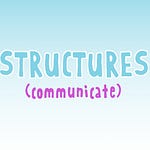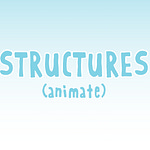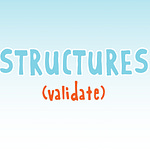Abbie: Hello and welcome to the CosmoParenting Podcast brought to you by the CMM Institute for Personal and Social Evolution. In this space, we invite you to see yourself as someone who is curious about and actively participating in creating your own meaning around parenting.
This is our ‘Communicate’ episode, in which the fourth episode of each month we will wrap up our theme by offering some ideas for communicating with your children, co-parents, or whoever else might be a part of your parenting, to start having conversations about the things you are learning here. Let’s begin.
*music*
Abbie: Today, I am joined again by Don Waisanen. Don is a father, professor, consultant, author, and improviser. Hi, Don. Welcome back.
Don: Hey, Abbie. Good to be back. Thanks for having me.
Abbie: Today, I'm really excited to talk to you about power. This has been a really interesting theme so far. Last week, we spoke with Stephanie and she talked about power in the classroom more as leadership, which is not how I was thinking about it. So that just got me thinking about different ways to understand power. So what would you say about power and how parents can be communicating about power?
Don: Sure. I think that's a great place to start- that there's different conceptions of power and different ways of looking at power, which are all useful. There's not just one definition for power.
So, I come at power from a very different perspective, I think, than many people are used to. And it's grounded in a long time love, frankly, of a book by Keith Johnstone called Impro. When I first started getting into improv theater a few decades back, I ran across Johnstone's book and he had something substantial to say about this. And instead of the word power, he substitutes the word status. So I think in parenting this is an incredibly useful concept. Think about what status level am I playing? Not necessarily what power do I possess?
And this is actually the shift that Johnstone says we can use and I think applies to parenting. Power isn't just an inherent possession. Sure, people in society have power. Some people have more resources than others. There's inequities around those kinds of things.
But I think we can also look at power in behavioral terms. And that's where we get to status. You can play high status, you can play low status, you can play equal status to someone. And Johnstone uses this great example. And you had the teacher in the classroom, like Stephanie was describing, some teachers are always playing high status behaviors. And have any of you noticed this? Like we all grew up, we went through school systems and there was a kind of inflexibility, a way of holding their bodies and moving around.
And Johnson describes this as if you have a completely still head, for instance, you can sort of feel your status level rise versus if your head's a little more loose and moving around, you feel your status lower. And he put it in behavioral terms. And I've thought about this a lot with parenting right on the flip side that we've all had teachers perhaps that are extremely low status, laid back, maybe a little bit permissive in terms of and lenient with things like grade.
And his argument- and this is the big takeaway for all of this- is that skilled communicators are able to raise and lower their status at will. They are able to play higher power when that's appropriate. And they're also able to skillfully shift to equal power or lower power, depending on the situation. And I think this plays out a lot with kids. Sometimes with kids, you've got to be able to say, like I do with my six year old, don't jump off the table right now. I don't want to go to the urgent care. My wife and I joke that we need a 10 for one card at the urgent care we go so much.
Abbie: Haha! A punch card!
Don: Yeah, can we use our punch card now, please? Because we're back again. So we need to raise our status. In those situations, I might raise my voice a little bit. I might puff out my chest a little more. I might show, you know, I'm your father. I want to take care of you. You're in an unsafe situation. I'm going to play higher status there. It's behavioral, though. I'm thinking about it in terms of nonverbals, body language. What am I doing?
At other times, it's great when you can just lower your status and you can get on the floor with the kids. I roll around and wrestle with my kids and play different characters or things like that with them just to laugh with them and show them that daddy isn't just a domineering figure all the time, that there's a kind of equality that can play out with that. There's a self-deprecation with humor, things like that, that's important. So, I love this because it's extremely practical, and it's just a concept that I think has a lot of weight and a lot of applications to CMM as well that we could get into.
Abbie: Absolutely. I am hearing a kind of refrain repeating from some of our other conversations, which is that it's about balance. The kind of extreme ways of being or, you know, kind of being committed to all one thing or all the other- all authority, all power, all high status- is one way of parenting. Low status- I'm just your friend. I'm never disciplining is another way to parent. But you're kind of suggesting there's a balance.
There's somewhere in the middle where you can step into both at the different times when you need to. And that's just reminding me of what we've spoken about in our other conversations of finding balance about adaptation and structure along with things like navigating these different levels of power.
In the first episode of this month, I talked about what's true, I think, for really all the themes, but especially was front of mind for me in power, is that what you just spoke to is how someone who is parenting might conceptualize their power. But the other side is what are you teaching your children about power? So I'm curious what you would say about maybe how what you just described is about modeling or what additionally you would say about what you want to teach your kids about power.
Don: Yeah, I mean, if there's anything to teach or any modeling that's done, I'm not sure if it's balance. I don't know that it has to be all equal. If your kids have a week where you need to play authority figure quite a bit, they go through these phases. My six-year-old right now is in a bit of a really cantankerous phase. And I don't know, it just could be bodily changes, things like that. But this week it's like, well, we got to step up the authority a bit to say, look, there's some boundaries here. There's some lines you can't cross in the classroom and you can't keep talking over people all the time. So I don't know so much about balance.
What I do think it is, is really working on the skill of flexing constantly and playing different roles. And right. I think this connects with wider histories in the public discourse, too. I thought about this a bit. There used to be this book. Some listeners will be familiar with a very famous book by Dr. Spock- not the Star Trek guy- but back in the 50s, it was this guide to parenting that, you know, my reading of it is that it somewhat affected generations of parenting that be detached, don't be too close, all these kinds of things. It reeks to me- it reeks to me of always play high status with children. They always need that.
And it was like, no, they they need probably that at times. But in other situations, flex. Just shift the behaviors a bit, go back and forth. So I think there's a lot to it. I think there's a lot of connections to be made. I think Attachment theory plays into this as well. For those unfamiliar, just the basics of it is that we develop different styles, I think, of communicating, as well as of responding to the world and people very early on based on interactions with our parents or caregivers. And those can be secure attachments, those can be anxious attachments, those can be avoidant attachments.
So, you know, in anxious, it's like a desperation for closeness. And in avoidance it's a emotional distance. I know in a lot of therapeutic applications- others can speak to this far better than I can- but this, this comes up a lot and it's got a lot of evidence behind it. And there I think about, ah, what is it, but you know, you can create secure attachments through communication. So I just think about that a lot. What is it to flex with your status with the goal of creating connections with your children in very turbulent and difficult periods of life growing up?
Abbie: Yeah, I'm really glad you make that distinction because I use the word balance, not trying to talk about equality of 50% of the time you should be high status, 50% you should be low status, but more about that flexing idea you're getting at, that there's some kind of middle road as far as different moments are going to call for each.
So I really appreciate what you've shared there. And yeah, thank you so much for your perspective today, Don. We'll be seeing you again soon.
And to everyone listening, thank you for joining us too. Don't forget to check out www.cosmoactivities.com for all our other resources in this series, all available for free. Great to bring kids of all ages into the conversation with you as you are learning with CosmoParenting. They can be learning with CosmoKids, CosmoTweens, or CosmoTeens. Also, I'd love to invite you to comment on this podcast episode in the CosmoParenting Substack. That's a great way to be in dialogue and to be learning from this community and others who are listening. We're so grateful to be on this journey with you, and we will look forward to joining you next week for the first episode for our Structures theme.
*music*









